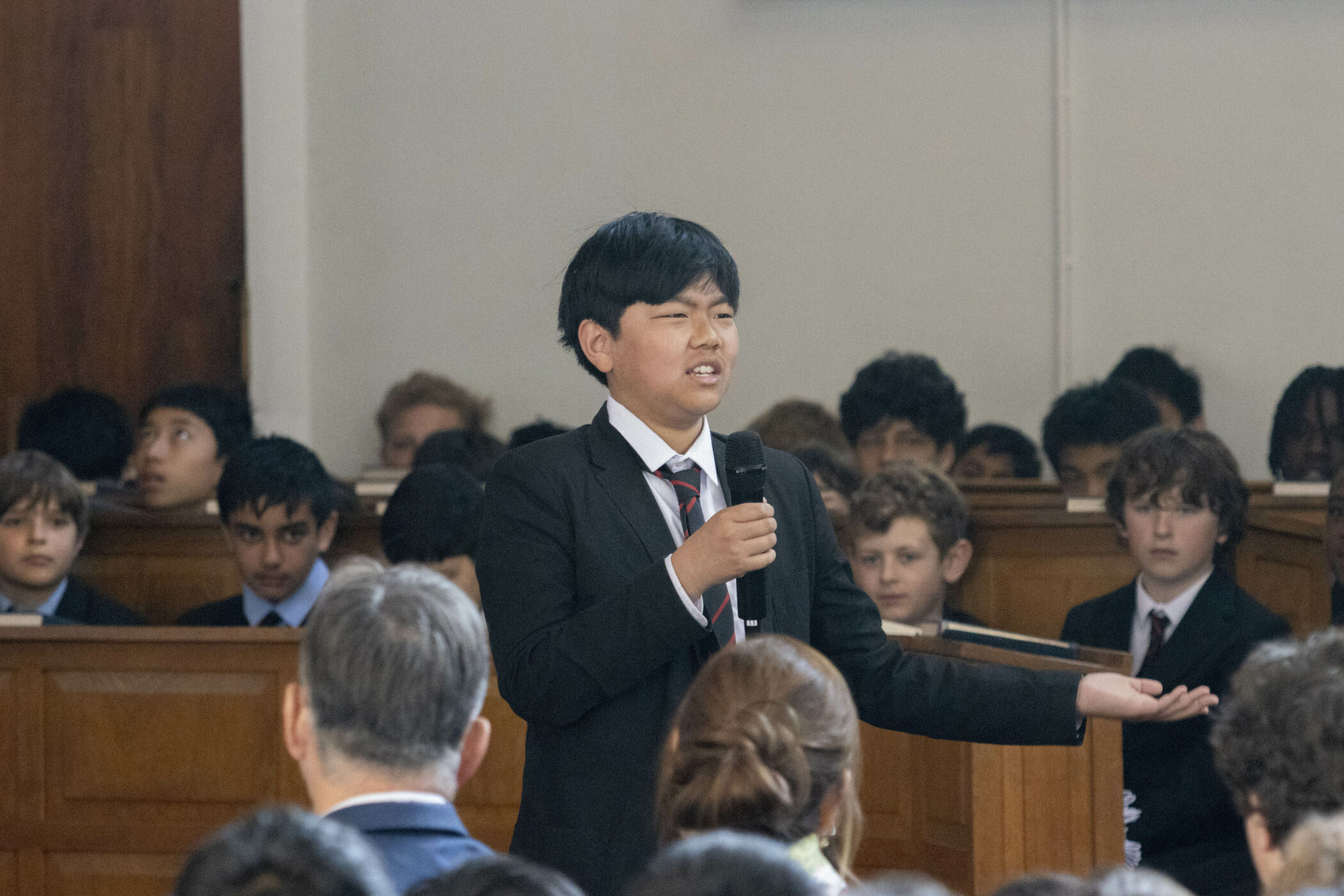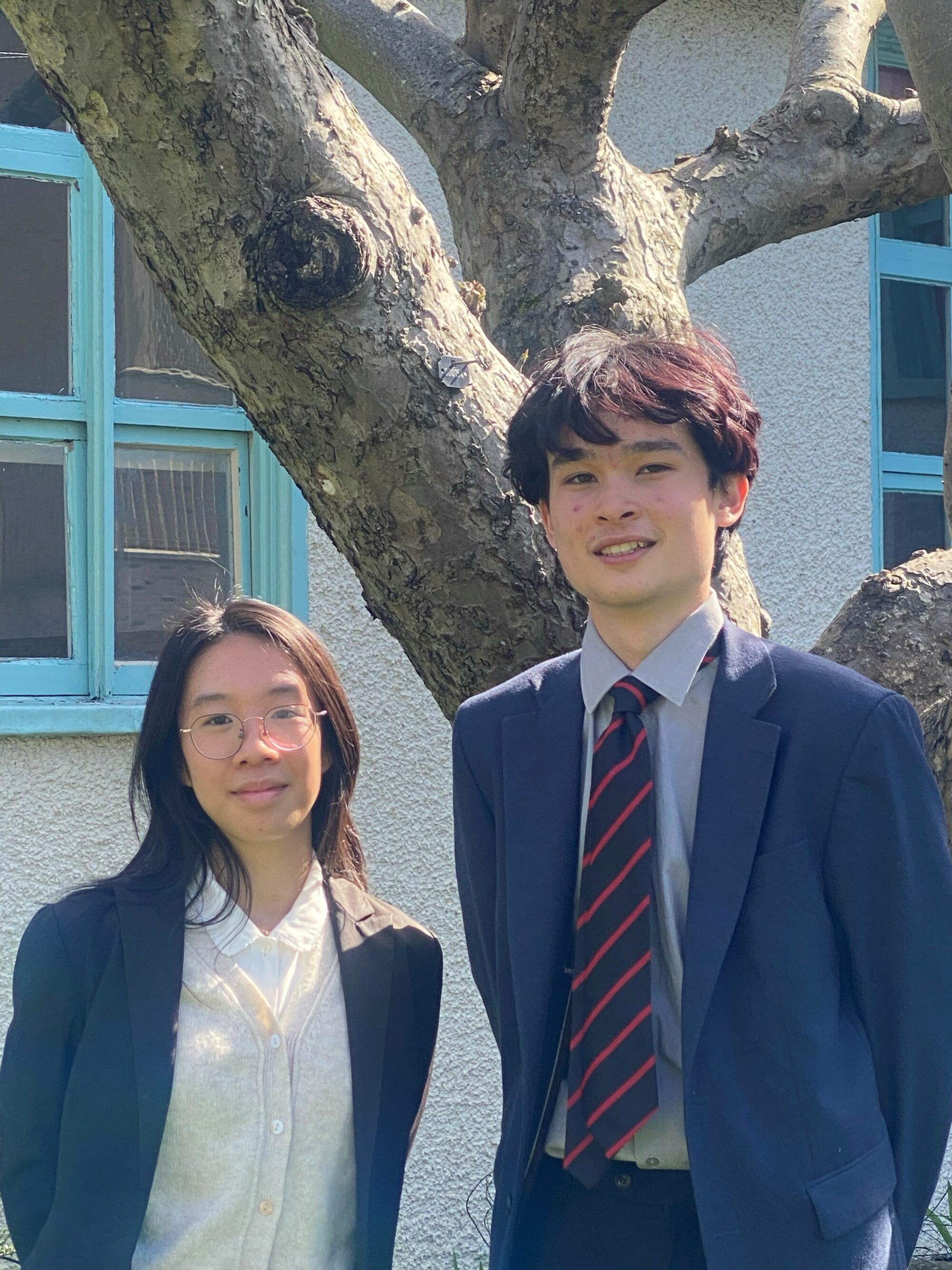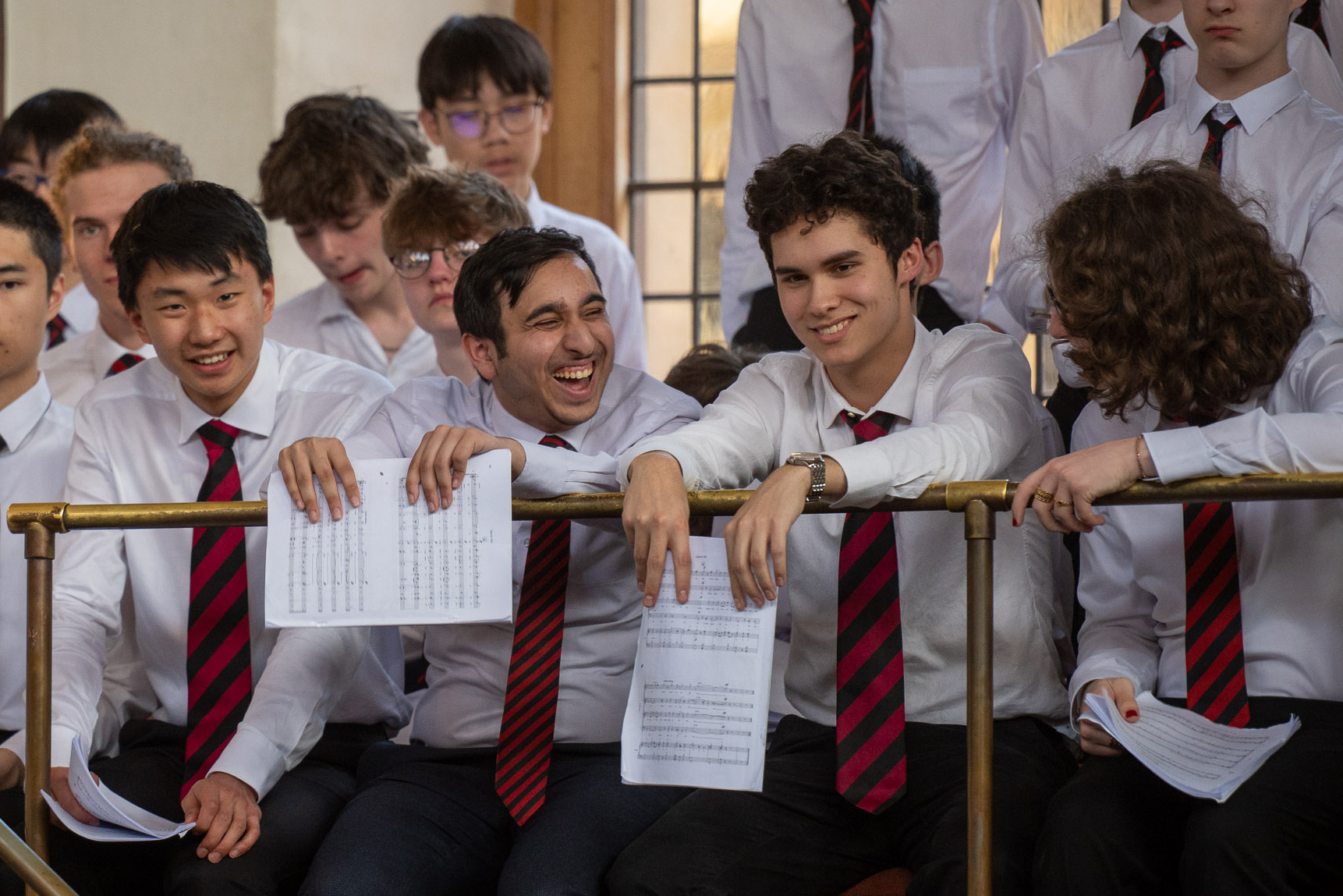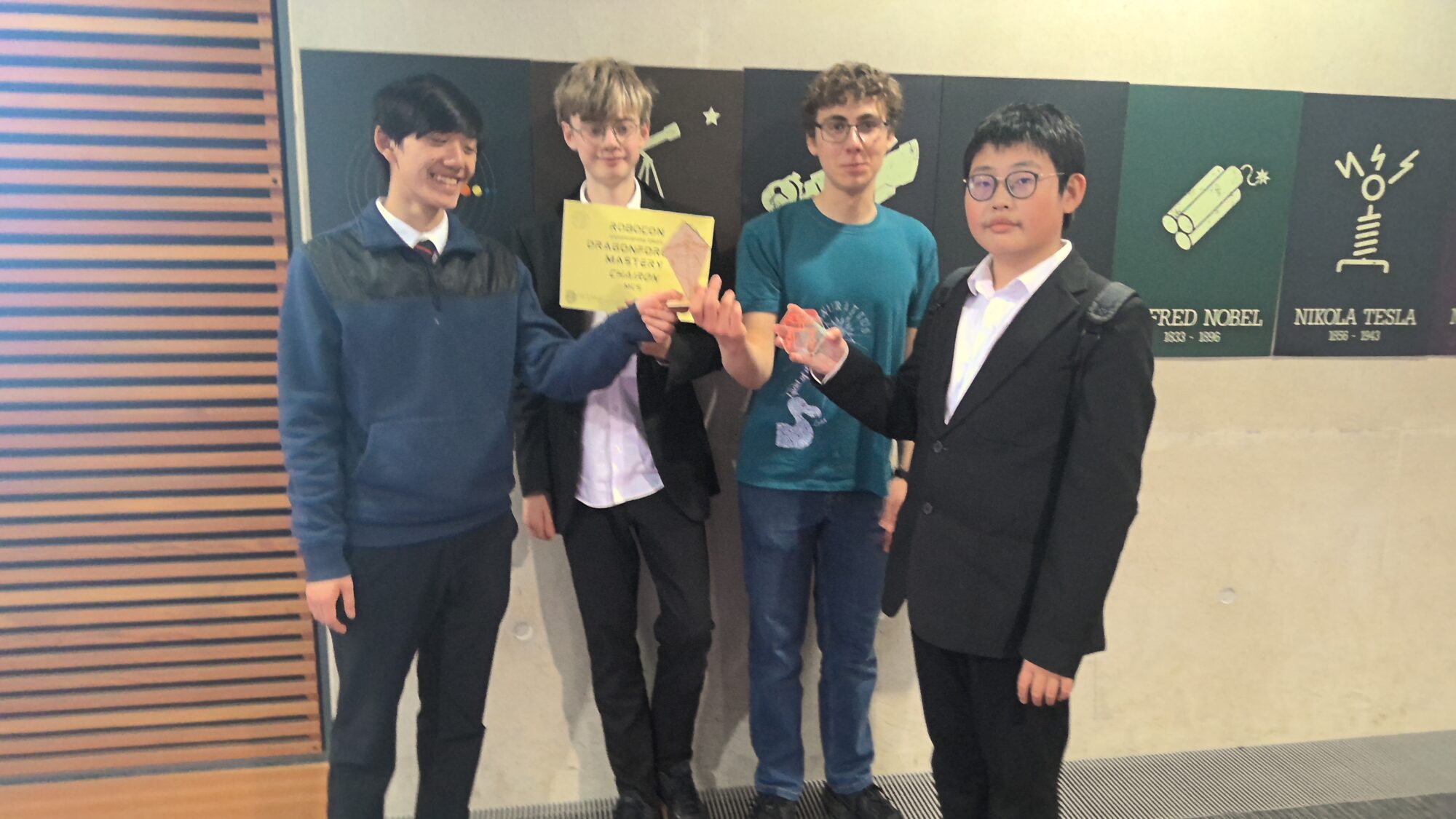The MCS celebrations of European Day of Languages this week began with a Chapel Talk from OW David Matheson (1998). He spoke about the importance of languages to him and explained how languages had helped him in his career.
He started his talk by explaining why he felt that learning a language is an opportunity to be embraced enthusiastically.
David noted four reasons:
- “It’s a wonderfully enriching experience to learn a different culture and have the chance to travel, live and work abroad.
- Languages open up opportunities in your life and career in a way that few other subjects can.
- They will make you a better and more empathetic communicator, and a better leader of people
- Having that language, whether it’s French, German, Spanish or Mandarin, might be that little difference, that marginal gain that will help you win in an increasingly competitive world”
David went on from MCS to study French and German at Oxford University and made his career in finance and banking. He explained that although most business meetings are conducted in English, building a rapport with colleagues from other countries by speaking in their language had helped him. In the global economy, job applicants with a wider understanding of cultures could have the edge, particularly as “…languages might be the thing that gives you that marginal gain, and the difference that helps you achieve your goals”.
David went on to give an example not from business but from the world of space exploration.
He told pupils “About five years ago, I had the opportunity to spend a day with Chris Hadfield, a Canadian astronaut and engineer, and one of the most decorated astronauts in history.
He flew in three missions, performed two spacewalks, crewed both the US space shuttle and the Soyuz, and became commander of the International Space Station. Just an incredibly impressive human being.
I asked him about his journey and all the training involved – potential candidates for a space mission are training for years with only a small hope of being selected in the final crew. As well as all the physical and technical training, he told me about making the decision to become fluent in both Russian and Japanese. He had never studied these languages, and his training class were all Canadians and Americans.
But he knew that to fly a mission to the Space Station, those languages could be key. Russian is widely used on the ISS, but he also knew there was a high likelihood that a Japanese astronaut would join an upcoming crew, and his ability to communicate with them might be the difference between being selected for the mission and staying on earth.
More importantly, once on the ISS, that ability to communicate clearly without any misunderstanding might be the difference between life and death in a critical situation, such as a spacewalk.
This wasn’t something that was forced on him, it was his own initiative. He took the studies in his spare time, with no guarantee he’d ever have the chance to put them to use, but he credits it as being the deciding factor when he was ultimately asked to become commander of the ISS in 2013
So, whether it’s space travel or my own experience in finance, you can see the importance of being able to communicate in another language – to make yourself more adaptable and hireable, to be able to get your message across clearly, to appreciate someone else’s way of thinking, and to make people want to work with you and follow you.”
David visited a number of language classes to talk to pupils along with the former MCS Head of Modern Languages, Nigel Laird, and he admitted that Mr Laird’s vocab lists still had the power to induce anxiety. He was asked which language he would study now if he only had to pick one (French – a beautiful country but also the European HQ of many multinationals since Brexit), how old he was when he first lived alone outside the UK (18/19 in his gap year after school) and the Fifth Formers particularly talked about how to make the best A level choices later this year.
In all, there are around sixty languages spoken at home among MCS families. David encouraged all the pupils to have a go and enjoy languages, not to worry (except in exams) about being perfect, and to enjoy appreciating other people’s perspectives and cultures.
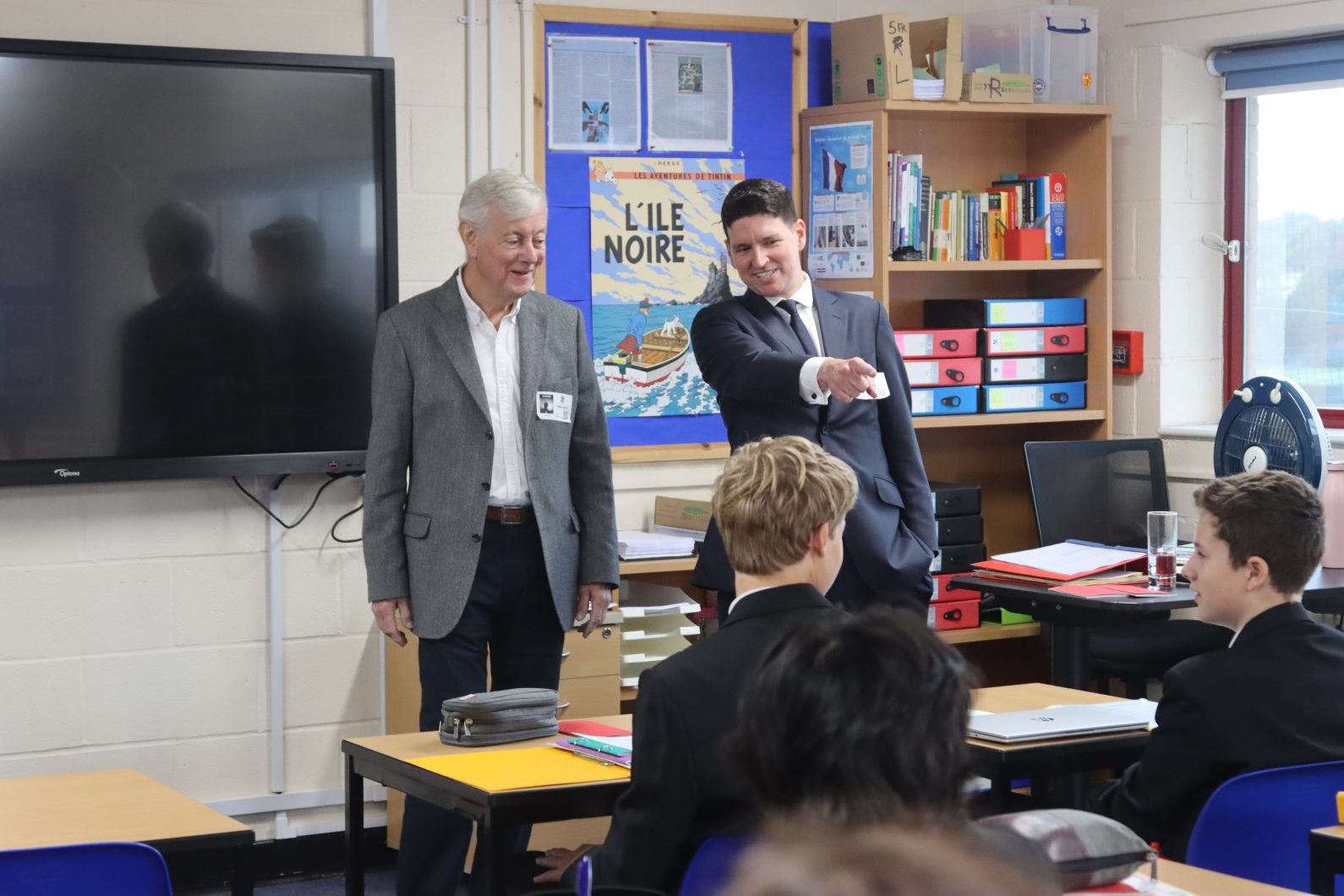
 MCS ranks among the top independent secondary schools, and in 2024 was awarded Independent School of the Year for our contribution to social mobility.
MCS ranks among the top independent secondary schools, and in 2024 was awarded Independent School of the Year for our contribution to social mobility.

 28 of our pupils achieved 10 or more 8 or 9 grades in 2024.
28 of our pupils achieved 10 or more 8 or 9 grades in 2024.
 In 2023-24, MCS received over £448,000 in donated funds.
In 2023-24, MCS received over £448,000 in donated funds.